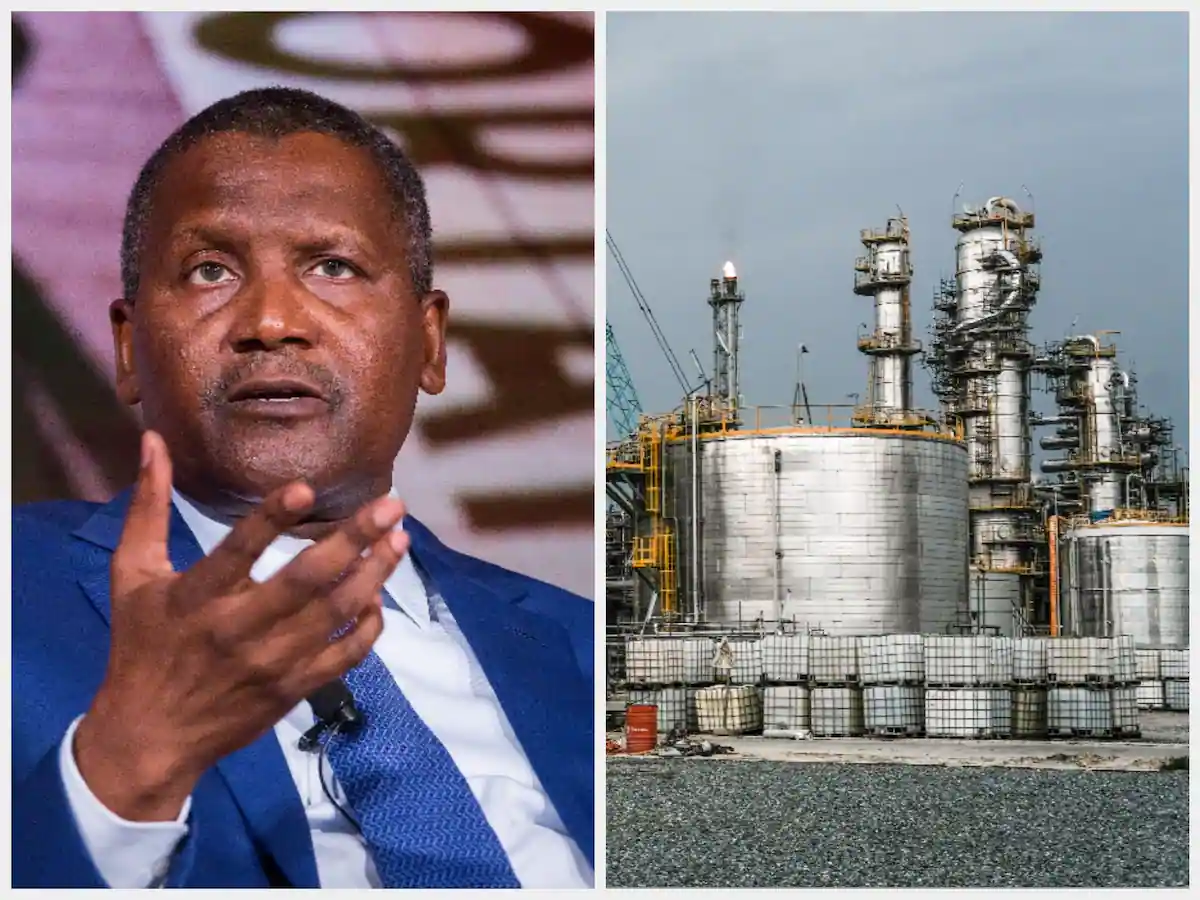In an exclusive interview with S&P Global Commodity Insights on September 18, Devakumar Edwin, the Executive Director of Dangote Group, shared important updates on the eagerly anticipated Dangote Refinery’s production timeline. According to Edwin, the refinery is poised to play a pivotal role in Nigeria’s energy landscape.
Edwin disclosed that the Dangote Refinery is set to receive its inaugural shipment of crude oil in the next fortnight, marking a significant milestone.
The facility will commence production of diesel and jet fuel, targeting an output of up to 370,000 barrels per day starting in October 2023.
The ambitious project will then initiate a phased ramp-up to produce 650,000 barrels per day of petrol, with operations slated to begin by November 30, 2023.
Explaining a slight timeline adjustment, Edwin clarified that the Nigerian National Petroleum Corporation Limited (NNPCL) had initially committed its crude to another entity, causing a temporary delay in crude supply. However, he assured that this is a short-lived issue, and the refinery is expected to run exclusively on Nigerian crude by November 2023.
Edwin highlighted that the purchase of Nigerian crude would be conducted in US dollars rather than the local currency, the naira, due to the refinery’s location in a free zone near Lagos. Notably, NNPCL will supply some crude at reduced prices due to its equity stake in the project.
The Dangote Refinery boasts the capability to process a wide range of African crudes, with exceptions including heavy Angolan grades and Middle Eastern Arab Light, as well as US light tight oil.
Edwin expressed the refinery’s willingness to accommodate even Russian grades if global regulations permit. This versatile production profile is expected to meet 50% of Nigeria’s fuel requirements.
Additionally, surplus gasoline produced by the refinery, meeting 10 ppm sulfur Euro 5 quality standards, will be exported to other African markets, the United States, and South America, although export volumes are anticipated to be relatively modest. Jet fuel will find its way to European markets, while diesel will be distributed in sub-Saharan Africa.
Edwin emphasised that the Dangote Refinery will prove immensely beneficial to Nigeria by providing a dependable supply of “environmentally friendly” refined products and injecting substantial foreign exchange into the nation’s economy. This development is expected to alleviate fuel supply challenges in import-dependent West African nations, where the recent removal of Nigeria’s fuel subsidy has led to a thriving illicit gasoline market amid price fluctuations.



